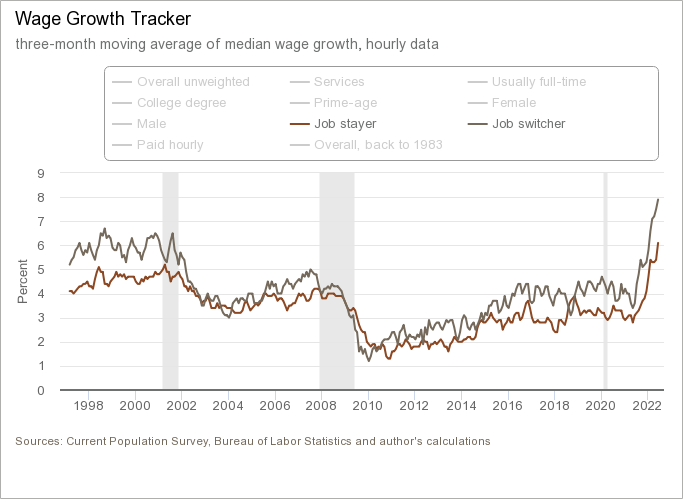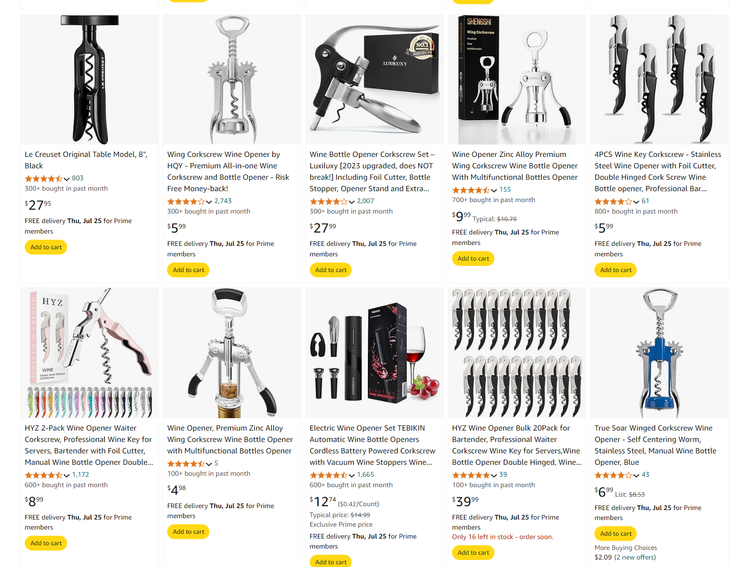The Worst Career Advice

Greetings friends.
I've noted before that bad advice is plentiful. See Career Path: Develop Principles. Still, I was stunned to read in an otherwise respectable publication what I think is quite possibly the worst career advice ever.
The Wall Street Journal recently published an article about job switchers with the subheading "Even if you're happy at your job, getting a new job for more pay is a good strategy as inflation eats into paychecks."

I've come across similar advice before: always go after the bigger paycheck; your future raises build off your base salary, so target the highest paying job; titles matter more than substance, so grab the CEO title if you want to earn the big bucks.
To be clear, this advice is spot-on if all you want is to make more money. But it is fantastically wrong-headed if you want to be happy in life. And if you place money first at work, you eventually may be much more likely to question your career choices than to have a good career.
And if not, you might be a hedge fund manager, in which case do you have any job openings?
The Journal article discusses data from the Federal Reserve Bank of Atlanta indicating that job switchers in 2022 saw raises of 6.4%, while job stayers saw increases of only 4.7%. Never mind that today's market is not unusual. There is almost always a spread between job switchers and stayers, and job switchers typically increase their salary as part of a switch:

What specifically are my objections to switching jobs just to make more money? They are threefold: first, we are selfish if we think of our jobs only insofar as they meet our needs; second, we become more effective at our jobs with specific experience in our jobs; and third, it is dangerously misleading to reinforce the idea that making more money will improve your life.
Your job is about more than just you
We talk about directors and officers of a company "serving" in their capacities. The directors serve at the pleasure of shareholders, and the officers serve at the pleasure of the board of directors. Although D&Os are typically handsomely paid for their service, they have clear fiduciary duties to the constituents whose interests they serve.
I kept a phrase at the top of my mind whenever dealing with my board and officer colleagues: I like you and respect you, but I don't work for you. I am here to serve the company and its shareholders. Thus, when evaluating priorities, I will always choose those actions that support the company's interests. Sometimes those interests may conflict with individual D&O interests, although thankfully rarely.
I don't expect every employee to have the same fiduciary duty feelings as the General Counsel. But it is reasonable to expect all employees to identify with and wish to see their companies succeed. If you find yourself feeling that your company owes you something and you owe nothing in return, you are a bad employee.
You need time to get good at your job
I found that job effectiveness is only partially about your specific background and skill set. And anyway, there are more than enough people with the raw talent to do most jobs. What makes a person stand out as a super performer? It is when they know enough about their company, colleagues, and culture to effectively drive strategic initiatives.
Good ideas are plentiful. The ability to implement good ideas is rare indeed. Successfully implementing a good idea requires a mix of realism, humility, and doggedness that most people never find. The people who do develop this mix typically do so only after some years on the job.
They learn about their company's history, including its past successes and failures. They identify who the respected voices are, people who can help speed a project along or, conversely, stop one in its tracks. And they learn how their proposed initiatives fit with the company's overall strategy, finding opportune times to push when they know they'll find a tailwind.
People who switch jobs every few years learn none of this. They forever run up against walls they don't even understand. Ironically, this makes them more likely to switch jobs again, before frustration and burnout (and their own lack of results) derail them.
Making money is a means, not an end
Some of the most ambitious people I know would seem to have the least to complain about. Generous six figure salaries, comfortable work environments, and enviable lifestyles. And despite their objective advantages, they are tempted by a higher salary, an ostensible promotion, a new company.
When I ask, "Will making more money change your life in meaningful ways?" or "What is it that makes you successful in your current job, and will you have the same advantages in your new one?" they don't have ready answers. It's as if they have identified objective markers for success (bigger salary, title, company, etc.), and feel compelled to be more successful.
The happiest people I know are the ones who learn that success is not measured in money. I wrote about them in The Stoic Career, and the lessons abide: can you say you like, trust, and respect the people you work with? Is your work interesting, challenging, and valuable? And do you share values with a solid company that has a strategy for continued success? Then you have all you need to be happy and successful in your career.
And if you find yourself in that position, why on earth would you give up a great job for a little more money, or even a lot more money? If you do, you risk getting not only what you want, but what you deserve.
Be well.
I'd love to hear from you. Just hit reply to tell me what's on your mind. If you received this mail from a friend and would like to subscribe to my free weekly newsletter, click here.







Member discussion